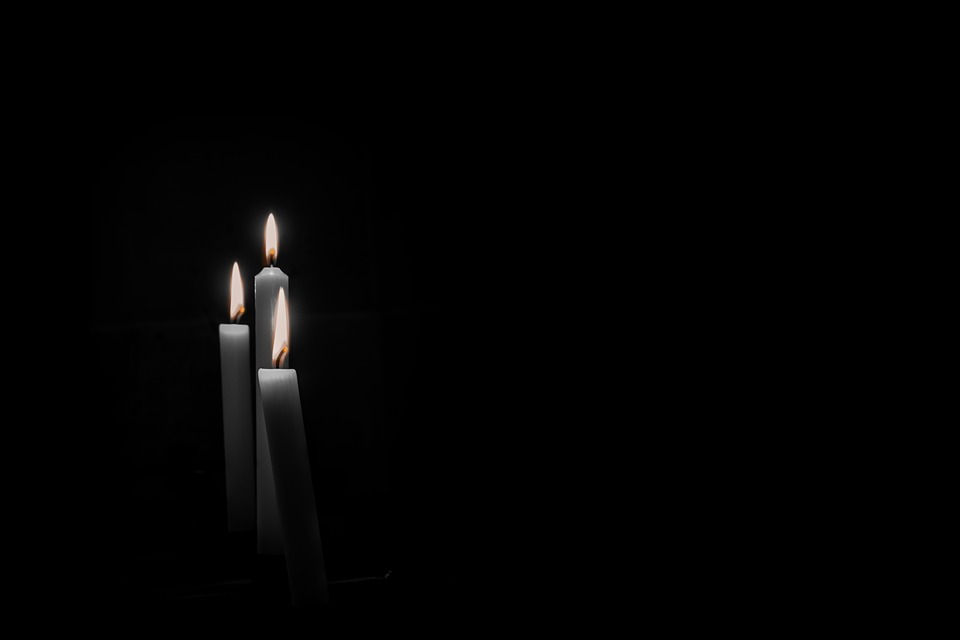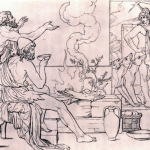– because the tragedy has already been politicized.
It happened in a public space, as a result of political forces and preconditions.
It happened in an environment of political rhetoric fomenting hatred and fear.
It happened because powerful political groups value the “right to bear arms” over the right to life, making it easy even for suspected terrorists to acquire deadly firearms.
It happened because of political disruption of regimes and the appropriation of religion by extremist groups bent on violence.
No tragedy should be politicized in the sense of used for personal advancement or self-promotion, to gain power or wealth or prestige. When we use the term “political” perhaps we imagine only a few power-hungry oligarchs vying for supremacy, most of whom care little for the lives of individual humans. But the political is also the personal, because what happens in the political realm has repercussions for individuals, and because it is predicated on the personal, emerging from communities of persons interacting. It is in this sense that we must politicize our conversation about gun violence, acknowledging that this does not happen in a cultural vacuum, or as a result only of personal choices.
We have a religious obligation to pray for conversion, and a religious need for solace and healing in times of distress. But the atheists who object to our saying that “our prayers are with the victims” have a point, if we refuse to act publicly to oppose the rhetoric of hatred, to create a culture of trust. And certainly, this cannot be done through legislation. Love can not be forced.
But let’s not pretend that legislation is irrelevant. Pro-life groups emphasize legislation as a major way to end abortion, so why do many of these same groups refuse to look at legislation as one way to end gun violence? It works in the UK. It works in Australia, even in a culture of hunting and outdoor recreation. Peaceful religion, wholesome spirituality, good education, and deep friendship are needed for mending the “heart problem” – but as long as original sin endures, the heart problem will never be wholly mended; bearing this in mind, it is at best naive to assume that easy access to powerful firearms is a good idea.
I am a gun owner; I like shooting; I like the feel of a gun in my hand. But here’s the deal: what I like isn’t the point. What I like might even be wrong.
Our gun rights do not trump the right to life. Gun rights may even be a fantasy, concocted by human beings, not endowed by God. Yes, I am questioning the second amendment; I am questioning the Constitution, since it is not an infallible text. And even within the bounds of what the Constitution permits – when the second amendment was formulated, did it grant gun-owning rights to all individuals, or simply to a “well-regulated militia”? If the second amendment was formulated in order to prevent a strong federal government from oppressing its citizens, given the development of weapons of mass destruction, is this goal now anachronistic?
We need to consider, also, how far our right to self-defense extends. The Catechism of the Catholic Church states: “The legitimate defense of persons and societies is not an exception to the prohibition against the murder of the innocent that constitutes intentional killing. “The act of self-defense can have a double effect: the preservation of one’s own life; and the killing of the aggressor. . . . The one is intended, the other is not.” This means we may not intend to kill in self-defense; therefore, we should question the use of weapons that are developed specifically not only to stop an attacker, but to kill in large numbers.
We need also to recognize the danger of tolerating or even subtly encouraging the depersonalization of individuals in the LGBTQ community. The Catechism reminds us that these persons “must be accepted with respect, compassion, and sensitivity. Every sign of unjust discrimination in their regard should be avoided.” But the culture-war approach to homosexuality has led to a paradigm of violence that blurs the face of the other, a language of dehumanization that legitimizes this violence. This, also, is political.
The tragedy has already been politicized, because it was a political act. As Christians we have political as well as personal obligations to counter such acts, not by exerting force and imposing our beliefs on others, but by bringing the face of Christ into the public sphere, so that the no-man’s land of fear and suspicion may be transformed into a space for trust and encounter. So we need to object, conscientiously, to the introduction into these spaces of trends, institutions, and technologies that violate the bonds between humans, and the right to life. Because there are political forces at work that strive to foment violence, and our work in the public sphere must be for peace, healing, and unity.
We owe it to the victims of the horrifying act of terrorism in Orlando, and to all victims of violence, to speak their names in public places, to honor their lives, and to oppose those forces that led to their destruction. Public mourning and honoring of the dead must be more than passing emotion or symbolic gesture, however; it must have solid political implications and speak to our collective responsibility.
Pray for peace. But work for it, also.
image credit: pixabay, CC0 Public Domain. Free for commercial use. No attribution required













